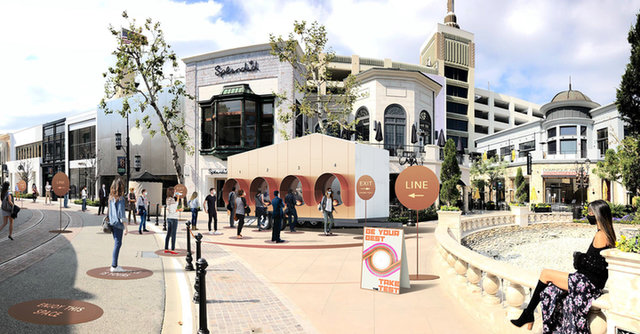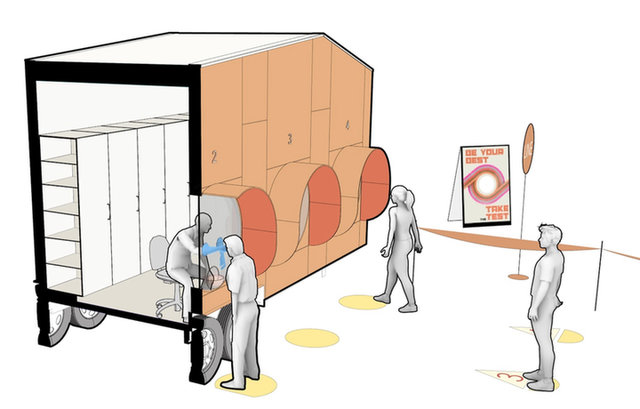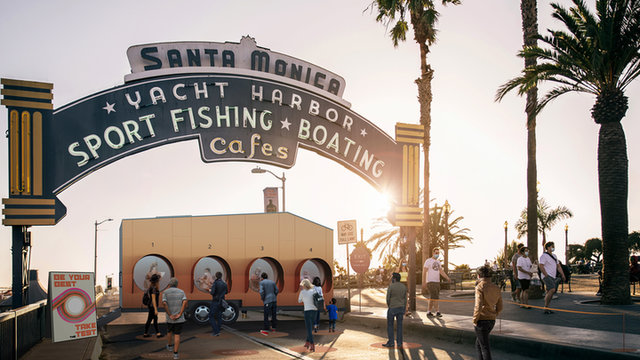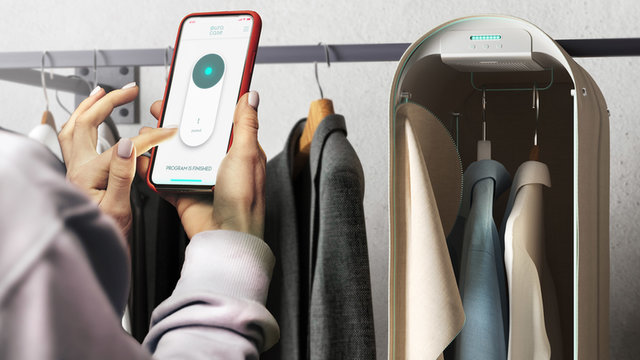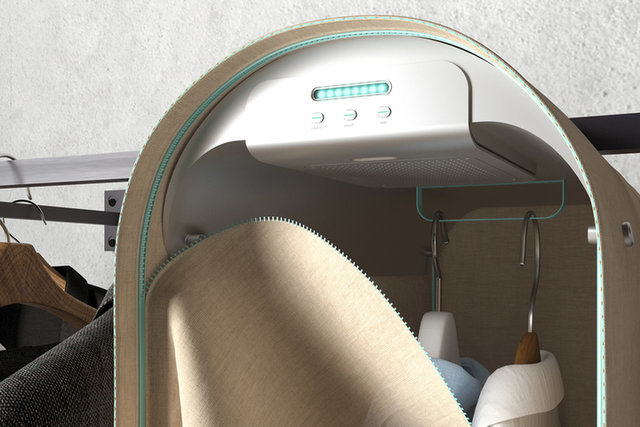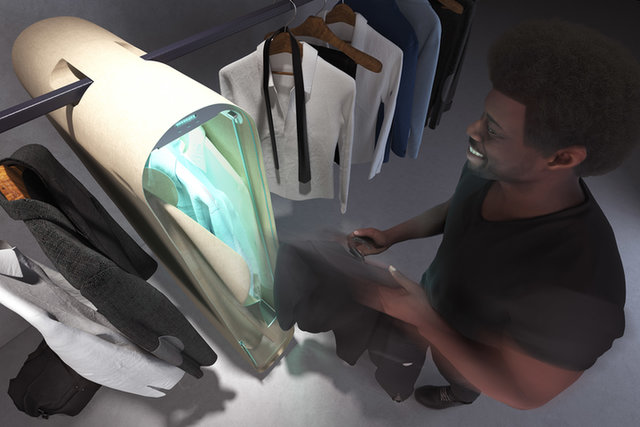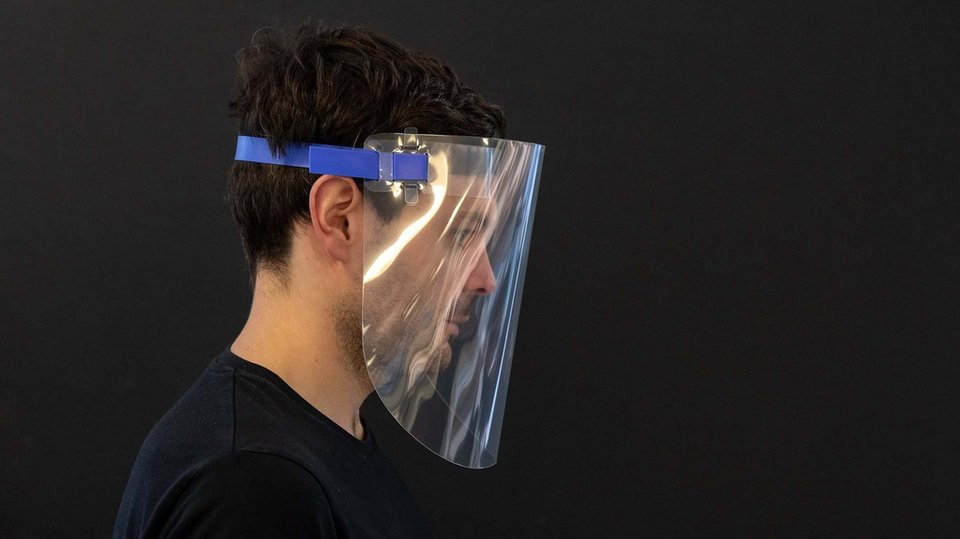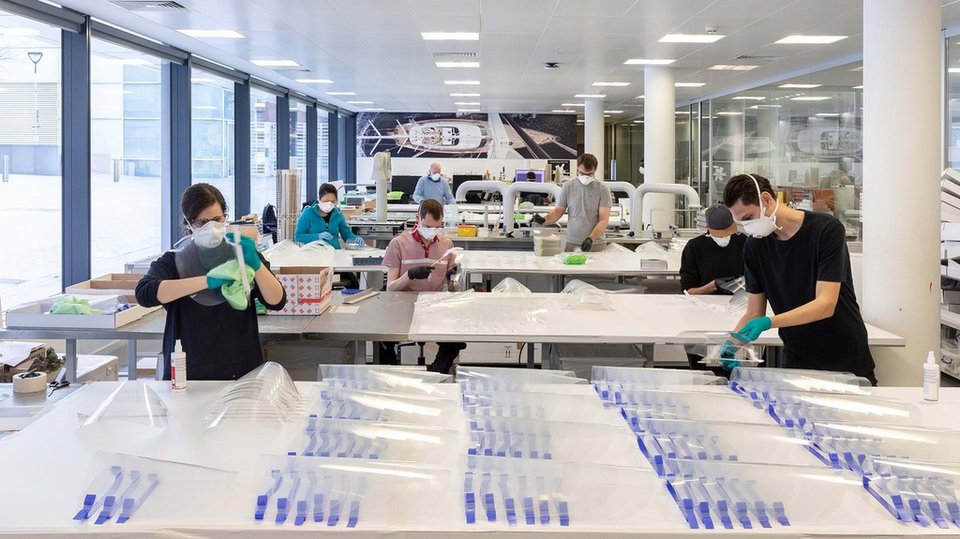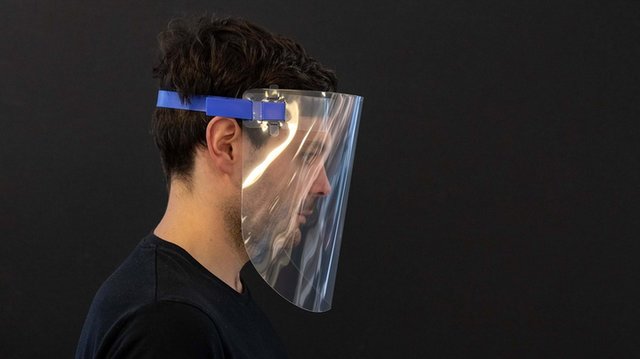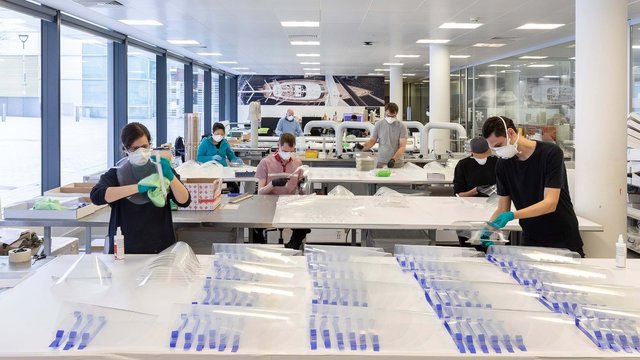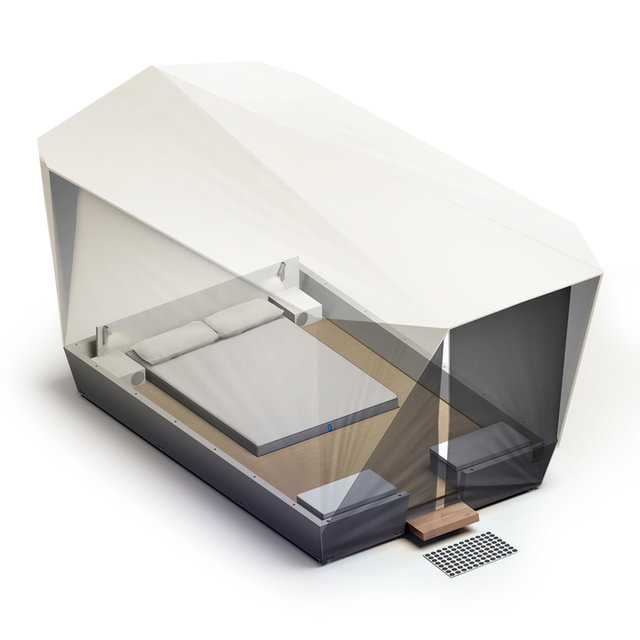Combatting the Coronavirus: Innovative Designs to Help the Fight Against Covid-19
As the world battled the coronavirus, creative industries turned their attention to a myriad of ways to support to fight, with architects and designers producing a wide range of schemes and products to help treatment and prevention in healthcare and beyond. We look at some of the most imaginative designs to come out of the pandemic
Mobile Covid-19 Testing Unit
Architects: M-Rad
Testing facilities for Covid-19 are essential, but in many parts the world are in short supply, with the prevention of virus transmission being a particular concern. Architects M-Rad have proposed a solution in the form of a series of mobile testing units that are clad in a copper alloy, a surface that the virus will die on faster than almost any other material. Designed as vehicle-mounted trailers so they can be easily moved, the unit provides space for testing staff inside, while visitors can queue at safe distances to take tests at one of the four windows. M-Rad has proposed that six of the trailers be used across the city of Los Angles, California, which would collectively be capable of carrying out 3,500 tests per day.
Images courtesy of M-Rad
Social Contact Pod
Architects: Scott Brownrigg
The inability to see elderly relatives has been a particularly challenging part of the pandemic, leaving many feeling very isolated during the outbreak. Scott Brownrigg has proposed a solution, in the form of a moveable pod that enables families to meet with their relatives, divided by a perspex barrier to prevent the transmission of the virus. The pod is also fitted with integrated microphones and speakers to enable sound to be transmitted between the two sides, and a small panel of flexible plastic enables relatives to hold hands without risking skin contact. “It is lightweight, rapidly constructed and is easily transported on the back of a standard truck or pulled on a trailer,” said Scott Brownrigg. “Importantly, it's been designed to be fully sustainable so that pods can be repurposed or recycled with relative ease when they are, hopefully, no longer needed.”
Images courtesy of Scott Brownrigg
Pura-Case
Architects: Carlo Ratti Associati
Moving away from architecture, Carlo Ratti Associati has taken on the challenge of the virus remaining on clothes with the development of Pura-Case, a battery-powered device that sits in wardrobes or a hallway and uses ozone to clean garments. Made from recycled fibres, the studio claims it can kill 98% of viruses, bacteria and micro-organisms from garments within an hour. Pura-Case, which was commissioned by tech startup Scribit, is currently in development as a prototype, with a Kickstarter planned to launch the full version.
“Viruses or bacteria can survive on clothes for long periods,” said Carlo Ratti Associati. “Ozone, a naturally-occurring triatomic form of oxygen (O3), is commonly used in the health and textile industry to sanitise fashion items, objects, and spaces.”
Images courtesy of Carlo Ratti Associati
Face Shield
Architects: Foster + Partners
A host of architectural studios around the world have applied their in-house fabrication technologies, which are normally used to make models, to the creation of much-needed personal protective equipment, most notably face shields. Architectural giant Foster + Partners is one such company, having designed a general purpose reusable face visor, which is designed for mass production and flat-packed shipping. Foster + Partners was able to produce 1,000 visors a day on a single cutting machine, and has made its design available for free to download on its website.
Images courtesy of Foster + Partners
Jupe Care
Designers: Jupe
Jupe, a creator of flat-packed, rapidly deployable housing units to combat the homeless crisis, has turned its attention to the coronavirus pandemic with the creation of Jupe Care, an off-grid unit designed for non-critical patients sufferening from Covid-19. Designed to alleviate pressure on hospitals in the US, the structure includes a bed, toilet, shower and sink, as well as support for Wi-Fi and networks as required. The units are designed to be transported folded down, with 24 able to fit on a trailer, and Jupe has also developed a Rest unit for medical professionals to sleep in between shifts. "The health system has many overlapping needs right now, and cannot function well without all the pieces in place," said Esther Choo, chief medical advisor of Jupe Health. "We're working to plug one of the more complex gaps."
Images courtesy of Jupe
